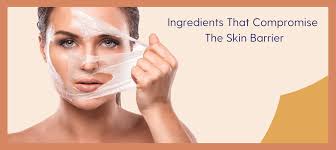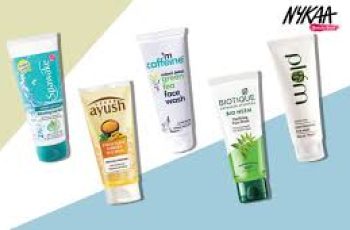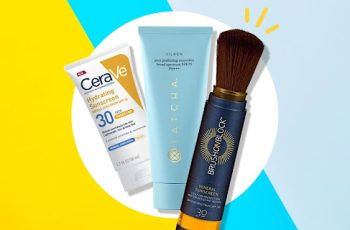
How to Choose a Cleanser That Won’t Strip Your Skin Barrier
I’ve heard many of my patients talk about how a cleanser ruined their skin barrier or stripped their skin, leaving it compromised and feeling tight, dry, or irritated. Once damaged, it can take time for your skin barrier to recover. So, how can you avoid this?
Injuring your skin barrier by using the wrong cleanser is a valid concern- many of us dry, sensitive skin types have been there. This article will help prevent you from using a product that feels harsh and leaves your skin in worse condition than before. But what exactly does it mean for a cleanser to “strip” your skin, and how can you choose the right one? In this blog, we’ll discuss selecting cleansers and tell you how to find a cleanser that won’t strip your skin.
Over cleansing can strip the skin of necessary oils
Strong foaming cleansers can strip the skin and damage the barrier
Even micellar cleansers can dry out the skin
The drying, stripping effects are due to surfactants
What Does It Mean to Strip Your Skin?
When we talk about a cleanser “stripping” your skin, we’re referring to the removal of essential lipids (oils) from the skin’s surface. These natural oils are part of your skin barrier, which keeps your skin hydrated and protects it from external irritants, like pollution, allergens, irritants, microbes, or harsh weather.
When a cleanser strips your skin, it removes these oils, fatty acids, lipids and sebum and weakens your skin barrier, leaving your skin prone to dryness, irritation, and sensitivity.
Strong surfactants can leave skin feeling “tight” or “squeaky clean”— is this a sign that the product is too harsh? Many people in online advice forums say” “If your skin feels tight after washing, your cleanser is too stripping.” Is this true? I have the same answer that I often have which is- “It depends on which of the 16 skin types you are.”
Cleansers That Will Not Strip Your Skin
These gentle barrier safe cleansers will not strip your skin. These are our top 5 choices of cleansers that will not strip oils from your skin:
Zerafite Soothing and Calming Cleanser: This non-foaming cleanser is helps protect the skin barrier while providing gentle cleansing. It is for dry skin types.
Medature Plantract Gel Cleanser: This is one of the few cleansers that works well for both oily and dry skin types making it a favorite for people who notice that their skin type changes seasonally.
VMV Hypoallergenics Moisture Rich Creammmy Cleansing Milk for Dry Skin: This cleaner is free from 110+ common allergens and is very good for allergic reactive skin.
La Roche-Posay Toleriane Hydrating Gentle Cleanser: This is a good affordable cleanser that pampers your skin barrier
Alastin Gentle Cleanser: This luxurious cleanser is liked by those with normal, slightly oily or dry skin types.
If you have oily skin, you are less likely to experience skin barrier damage from cleansers because your sebum is protective.
Below are more barrier safe cleansers:
Foaming vs. Non-Foaming Cleansers: Which Is Better?
There’s often debate about whether foaming cleansers are more likely to strip the skin than non-foaming cleansers. While foaming cleansers tend to use surfactants that can be harsh on the skin, not all foaming cleansers are created equal. The type of surfactant used makes a big difference in whether a product will strip your skin. For instance, sulfate-free foaming cleansers can still provide that satisfying lather without removing too much of your skin’s natural oils.
Non-Foaming Cleansers are generally gentler and more moisturizing because they don’t rely on harsh surfactants. Cream or oil-based cleansers, for example, are typically better for those with dry, sensitive skin or compromised skin barriers because they deposit nourishing lipids on the skin.
Micellar Cleansers
Micellar Water is another option for those looking for a very gentle cleanser. It contains tiny micelles that attract dirt and oil without stripping the skin. Micellar water is particularly beneficial for sensitive skin types and for those who want a quick and easy cleansing routine. However, some micellar cleansers have strong surfactants, so make sure you choose a gentle one.
Ingredients to Avoid That Compromise Your Skin Barrier
Certain ingredients in cleansers are known for their potential to strip the skin. If you want to protect your skin barrier, it’s best to avoid these common culprits:
Sodium Lauryl Sulfate (SLS): This is one of the most common sulfate surfactants used in foaming cleansers. It is quite harsh and strips away so much of the lipids in your skin barrier that it is used in research trials to purposely compromise the skin barrier.
Sodium Laureth Sulfate (SLES): Similar to SLS, this ingredient is often found in shampoos and face washes but can lead to dryness and irritation. It strips much less oil than SLS and when found in a small amount in the cleanser it is well tolerated. However, avoid cleansers that have this in the first 5 ingredients.
Cationic and Ionic Surfactants: These surfactants, such as cocamidopropyl betaine and ammonium lauryl sulfate, are also known for their cleansing power but tend to strip lipids from the skin.
Denatured Alcohol: Often used in toners and cleansers for its quick-drying properties, denatured alcohol can dry out the skin, especially in sensitive skin types.
Harsh Exfoliants: Avoid physical exfoliators or scrubs with large, rough particles like crushed walnut shells. They can damage the skin barrier and leave it more prone to irritation.
By steering clear of these ingredients, you’ll be more likely to find a cleanser that cleanses without over-stripping your skin’s essential oils.
Do You Need to Change Your Cleanser Seasonally?
An important aspect of choosing the right cleanser is recognizing that your skin’s needs can change with the seasons. This is especially true for those who live in areas with significant seasonal changes, like colder winters or more humid summers. The skin’s moisture levels and barrier function can fluctuate with weather conditions, and using the same cleanser year-round may not always be ideal.
In winter, for example, skin tends to lose moisture faster due to colder temperatures and lower humidity levels. If you notice that your skin feels drier, tighter, or more irritated during this time, it might be time to switch to a more hydrating, barrier-friendly cleanser. Gentle, non-foaming cleansers or oil-based cleansers that nourish the skin barrier are excellent options for winter. On the other hand, in the summer, when the skin produces more sebum, you may want to opt for a lightweight, gel-based cleanser that can cleanse more deeply without over-drying your skin.
If you suddenly notice that your usual cleanser starts stripping your skin, consider that your skin type may have changed. Retake the skin type quiz to assess your current needs. While combination skin types do not exist, there are changing skin types that may go from dry skin in winter to oily skin in summer. For these individuals, it’s essential to switch cleansers seasonally and upgrade to a richer moisturizer in winter to protect their skin barrier and avoid stripping away protective oils.
The Dangers of Over Cleansing
Over cleansing is one of the most common skincare mistakes, and even gentle cleansers can dry out the skin by stripping away essential lipids. These lipids are part of your skin’s protective barrier, helping to retain moisture and fend off environmental stressors.
If you have oily skin, cleansing twice a day is generally sufficient. Some individuals with extremely oily skin may benefit from cleansing up to three times a day, but it’s essential to be cautious. Oily skin types should only use a foaming cleanser once a day because foaming cleansers, even mild ones, can strip your skin’s oils and damage the barrier if overused. The second cleansing can be done with a salicylic acid-based cleanser, which helps clear clogged pores, or a benzoyl peroxide (BP) cleanser if you’re dealing with acne.
For dry or reactive skin types, especially those prone to conditions like rosacea, it’s may be best to skip the morning cleanse entirely to preserve natural skin lipids. Washing your face only at night can help keep your skin from drying out and reduce irritation. Dry skin types should also avoid foaming cleansers, as these can exacerbate dryness and irritation.
One of the most significant issues with over cleansing comes from over-exfoliation. Many people mistakenly use too many exfoliating products in their routine, such as facial scrubs, acid-based cleansers, retinoids, and exfoliating acids like ascorbic acid and azelaic acid. To prevent damage, it’s best to limit the number of exfoliating products to a maximum of three in your skincare routine.
Summary
Selecting a cleanser that won’t strip your skin comes down to understanding your Baumann Skin Type and knowing which ingredients to avoid. Stick to gentle, non-foaming cleansers or sulfate-free options, and be mindful of how your skin reacts after washing. If your skin feels tight or irritated, it might be time to make a change. With the right cleanser, you can maintain a healthy skin barrier while still keeping your skin clean and refreshed.


